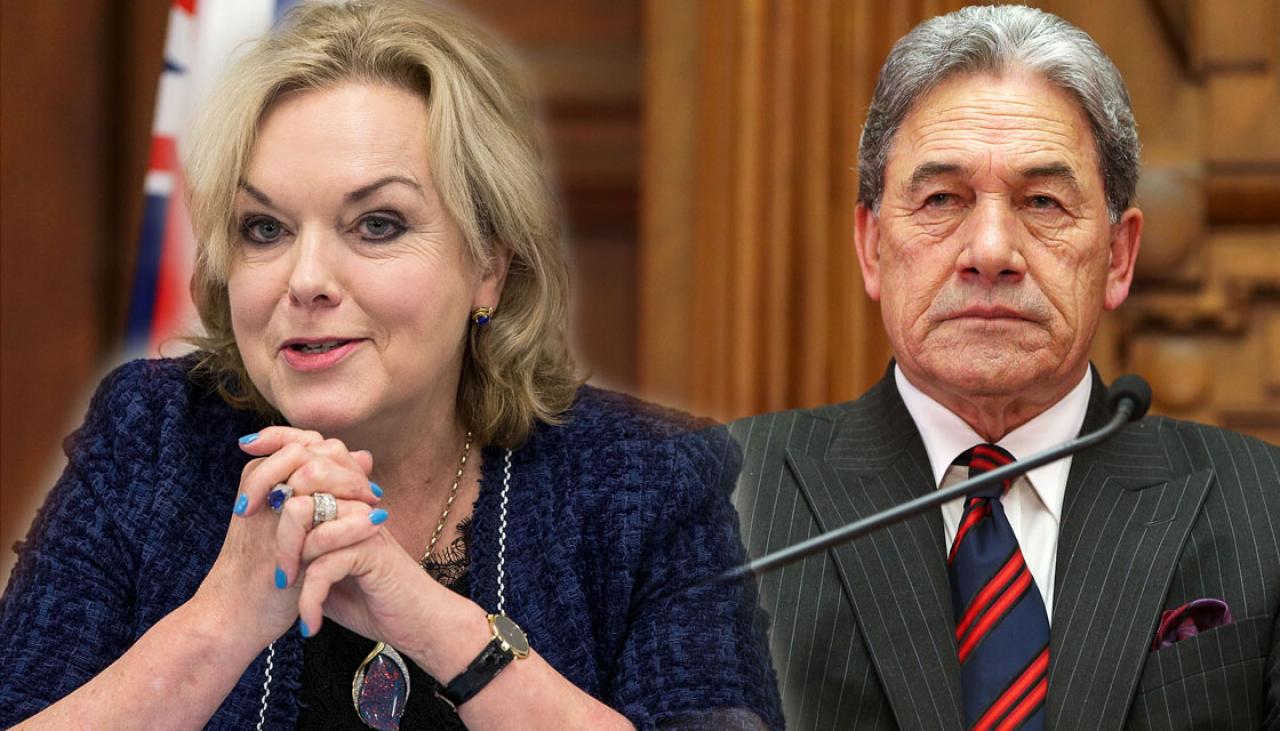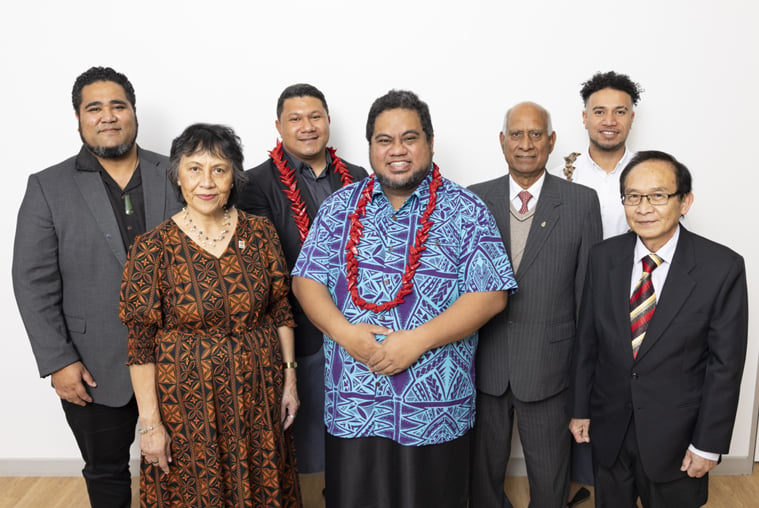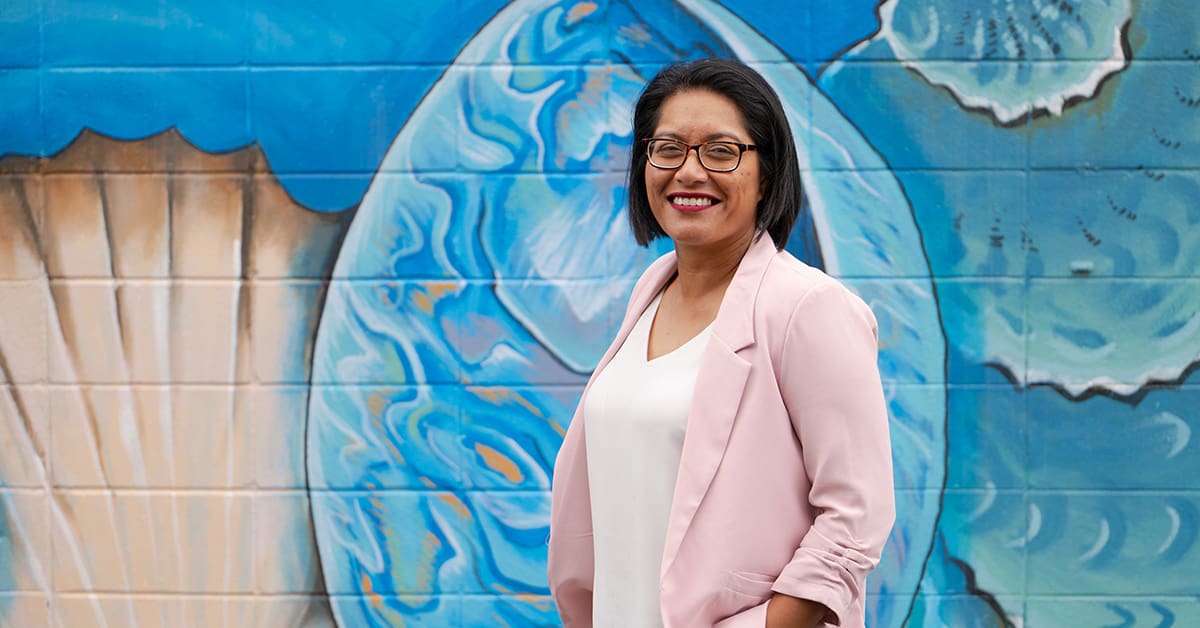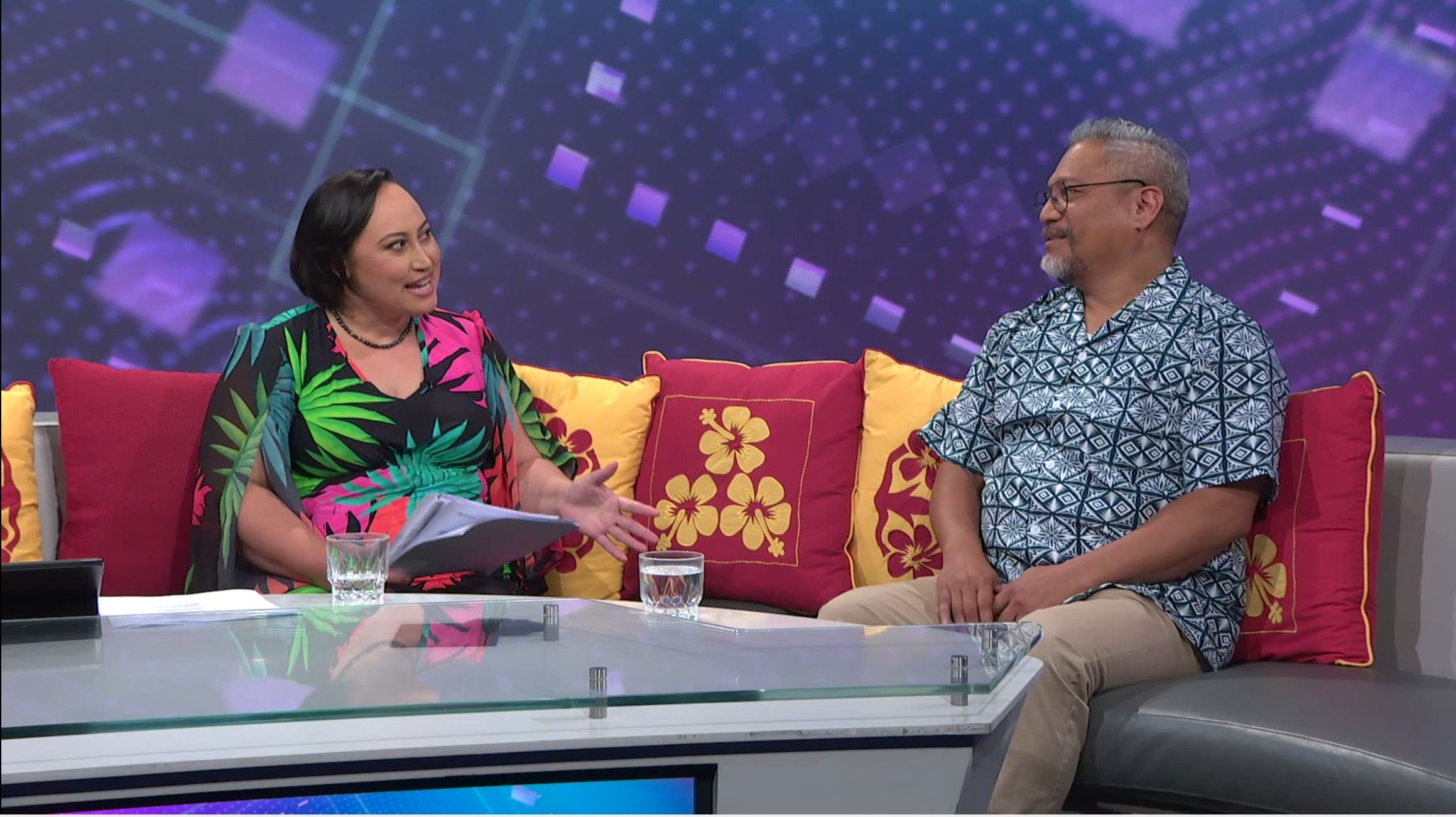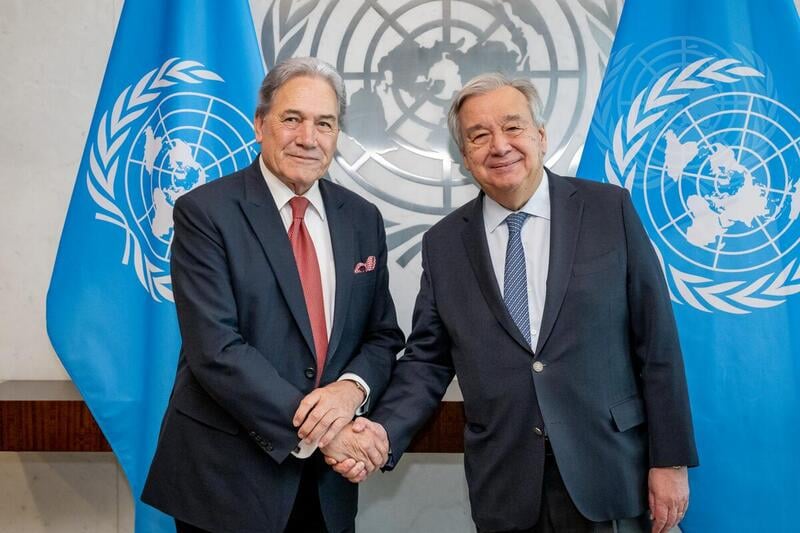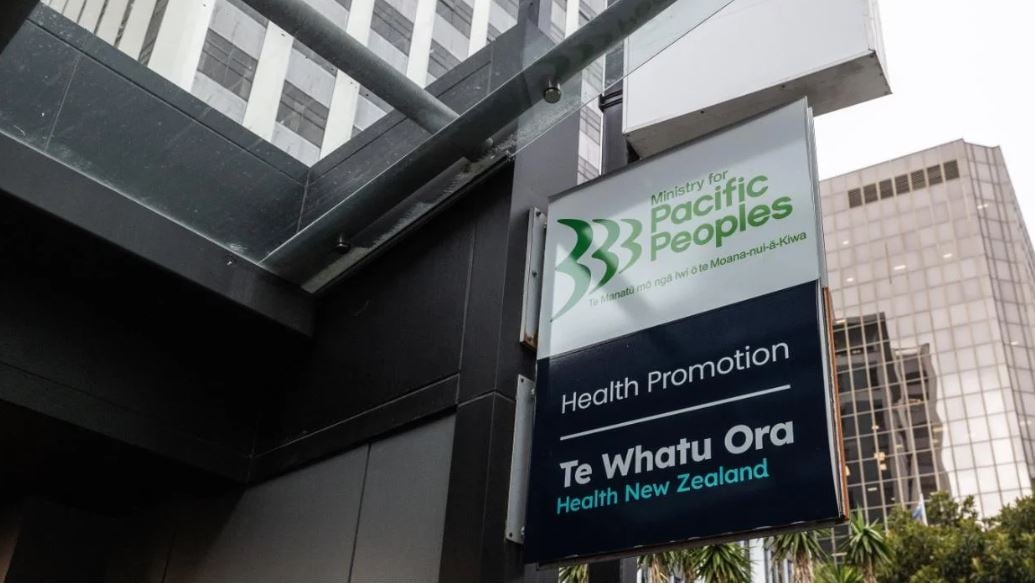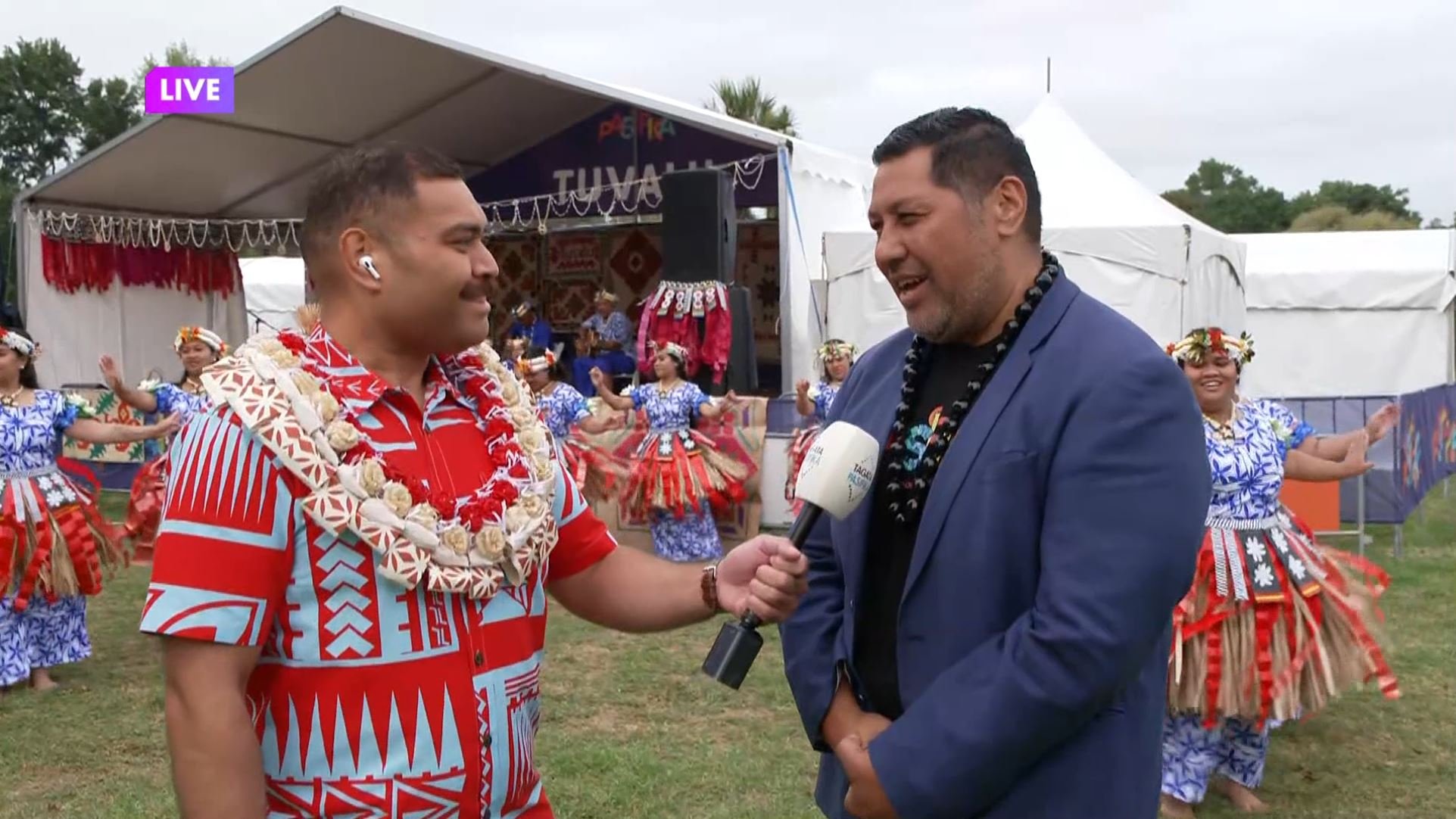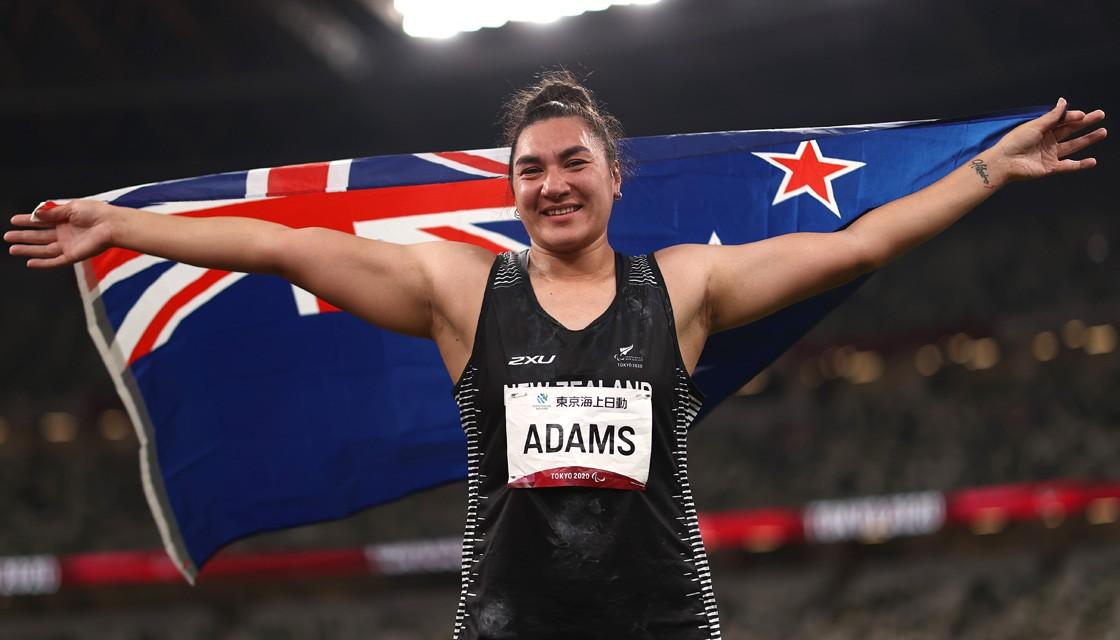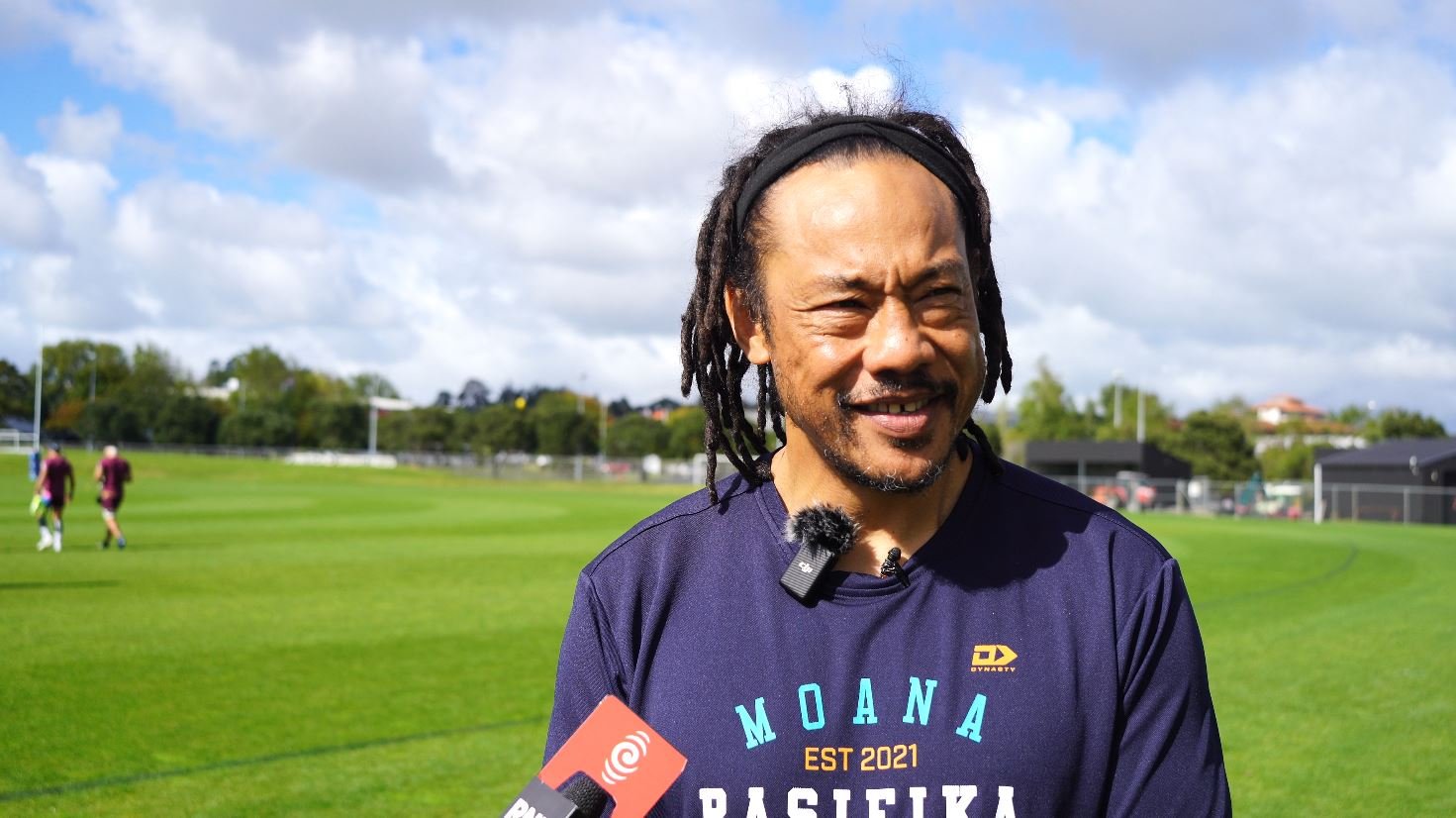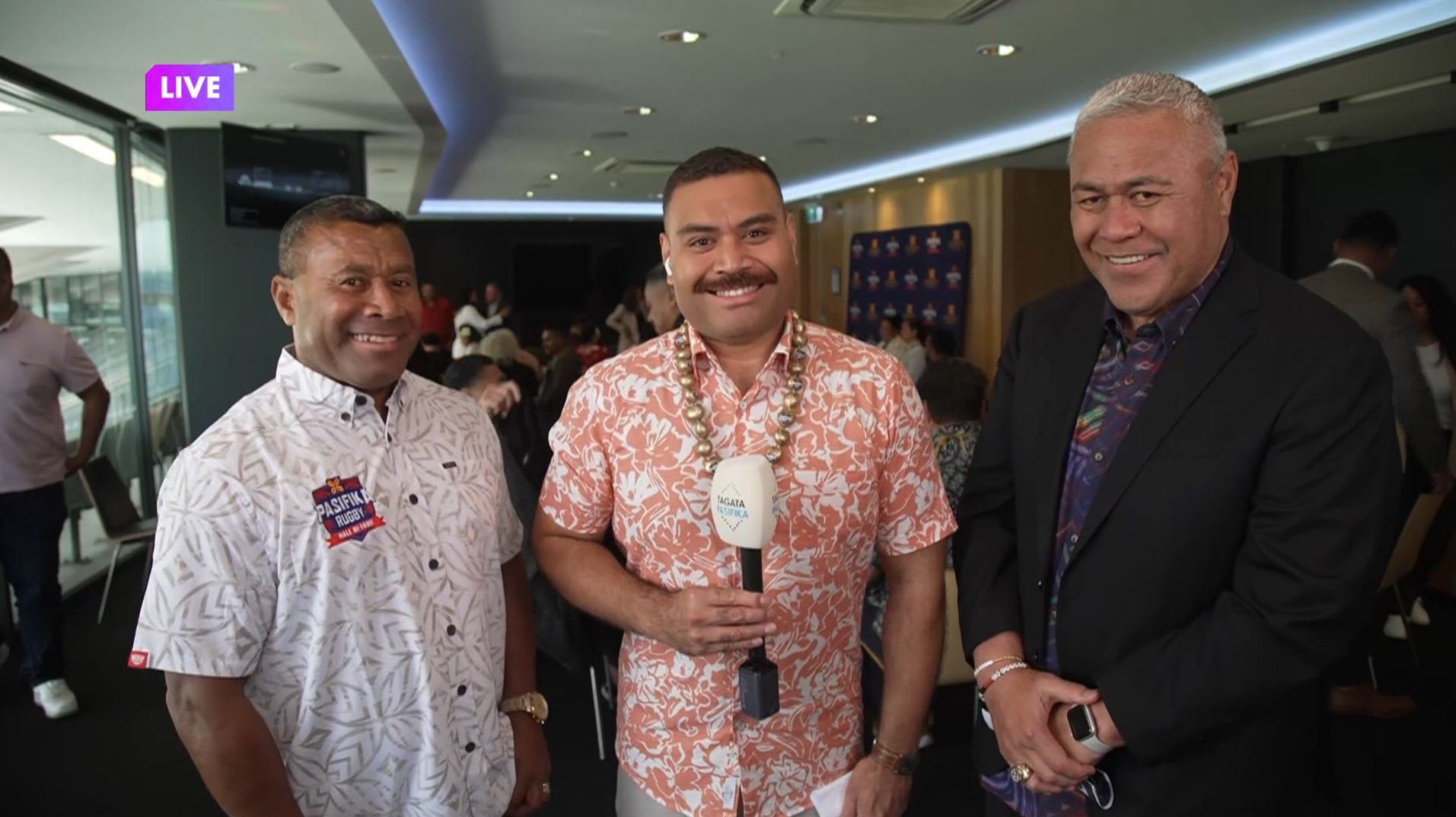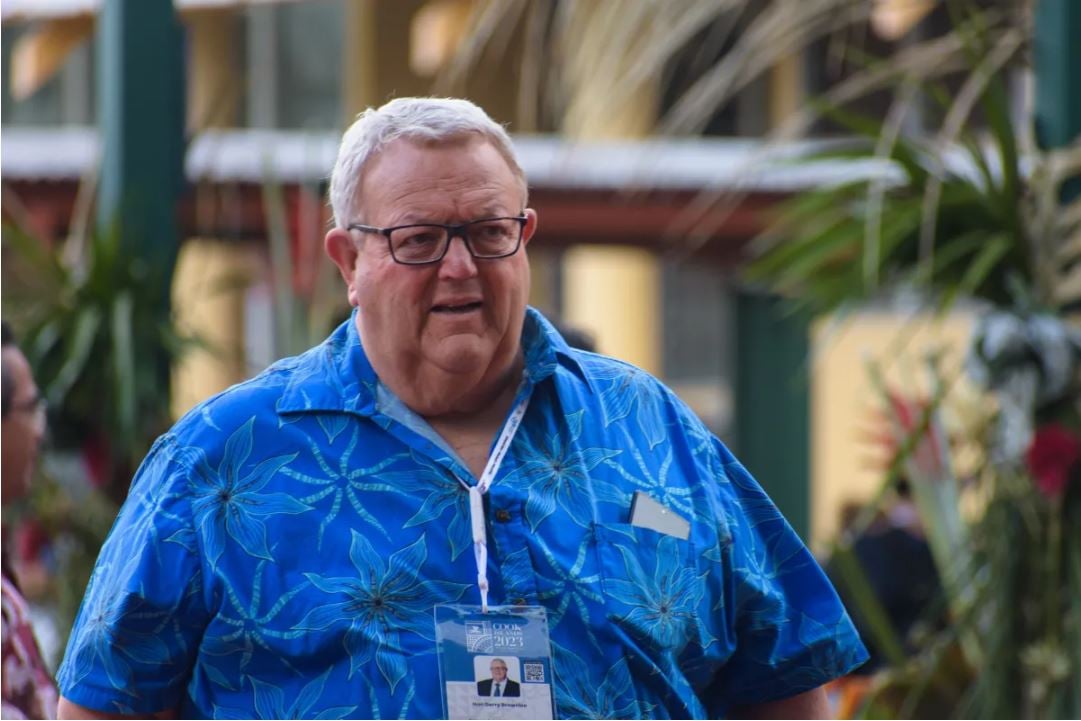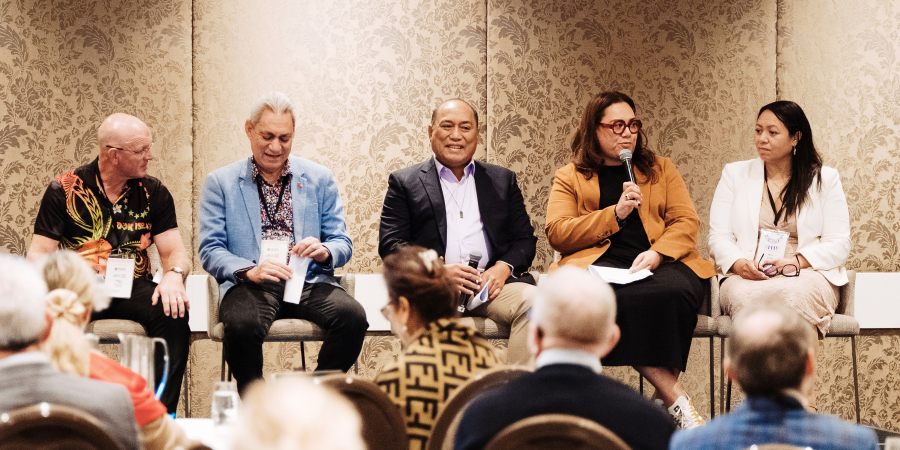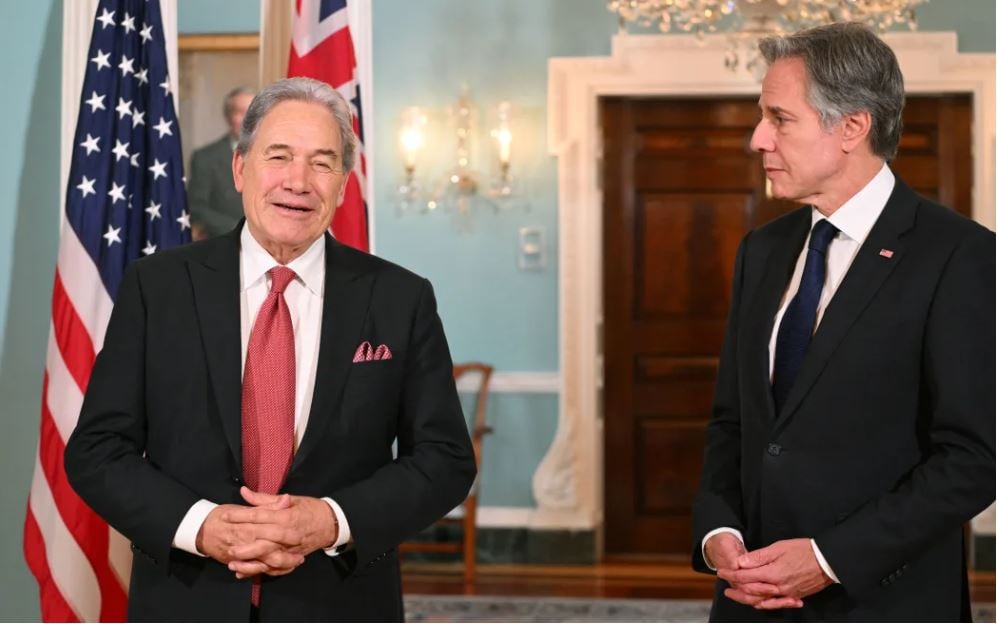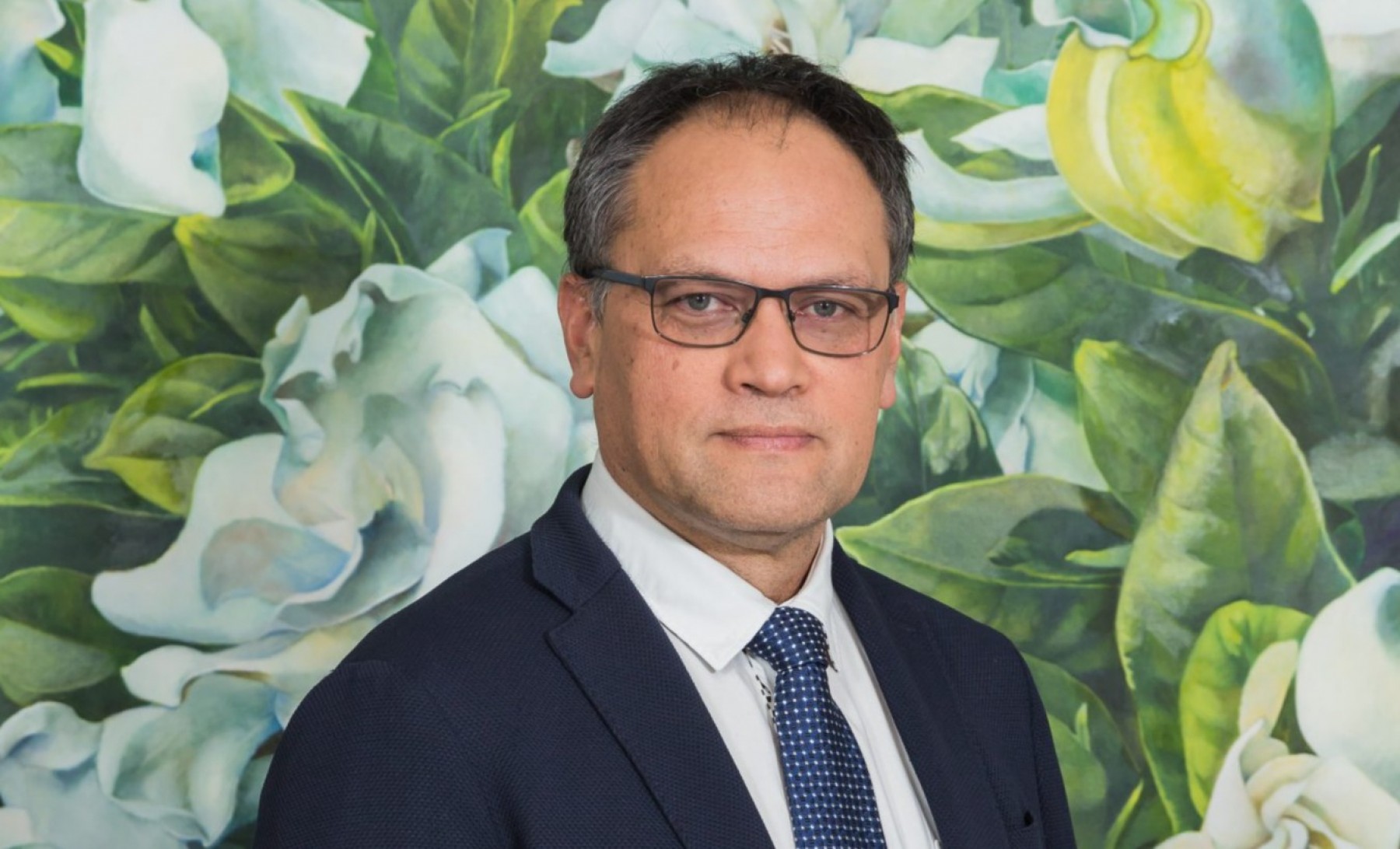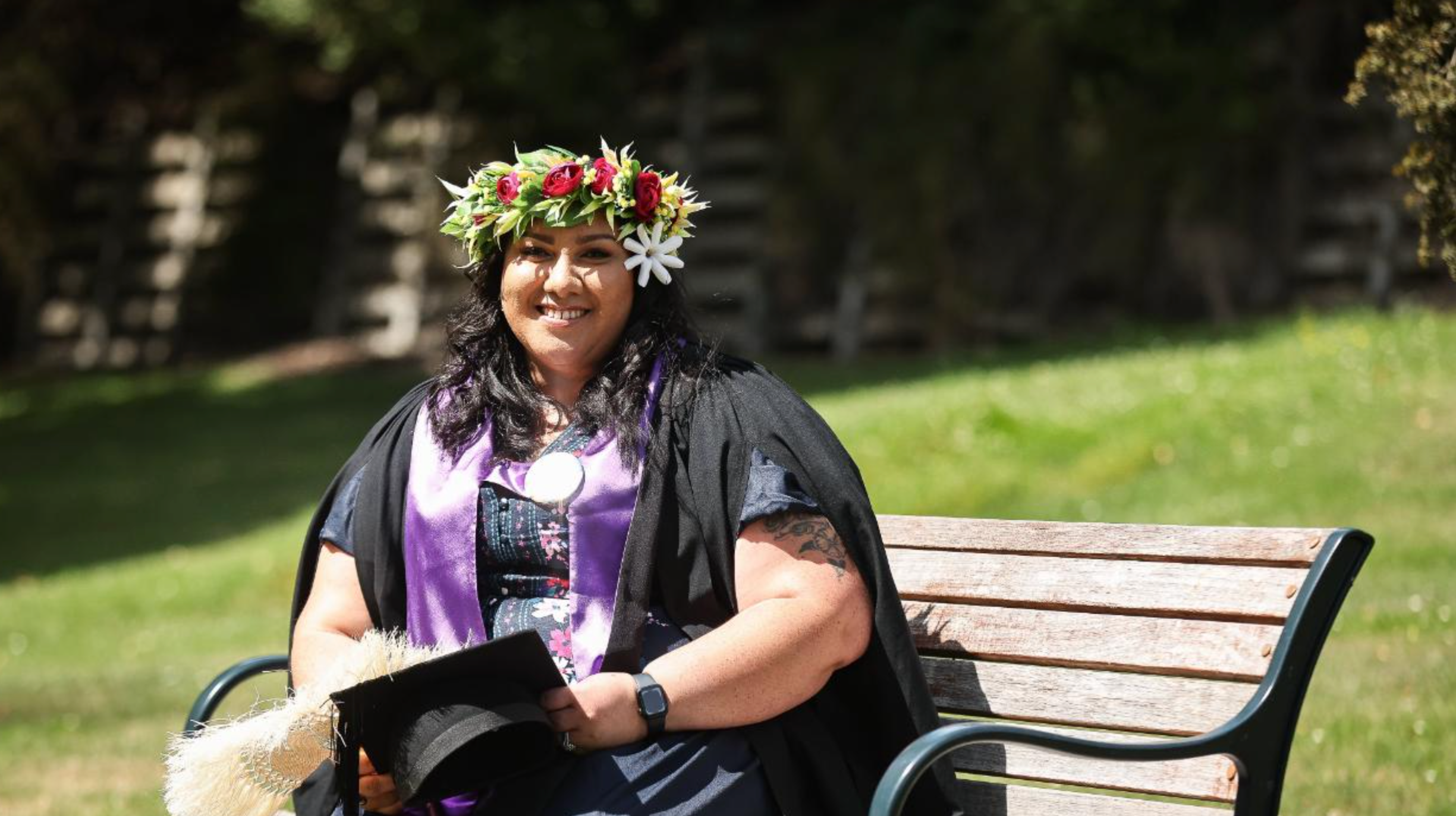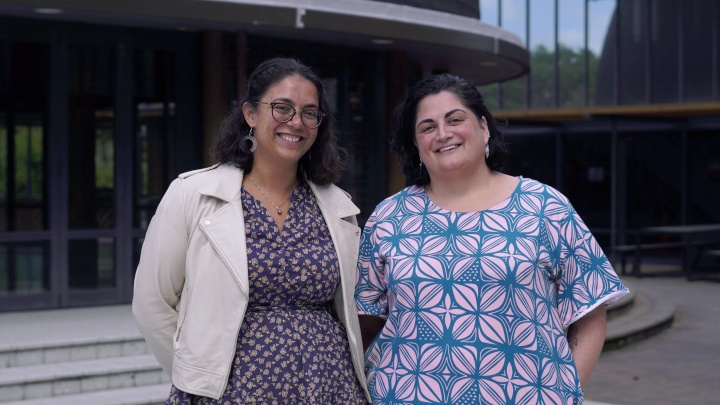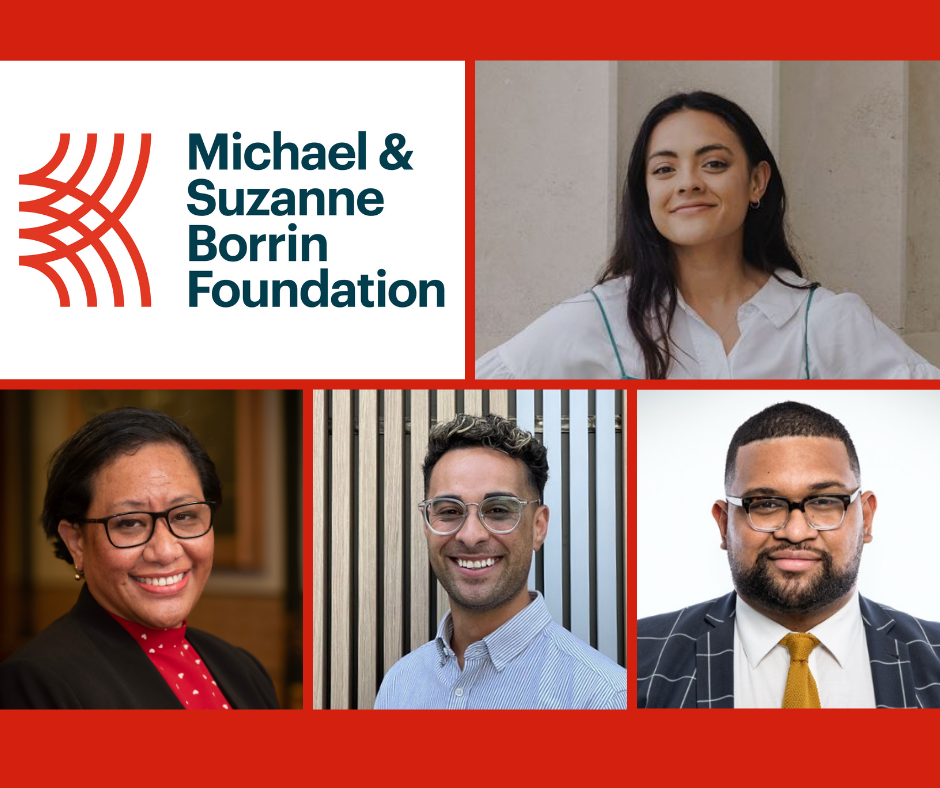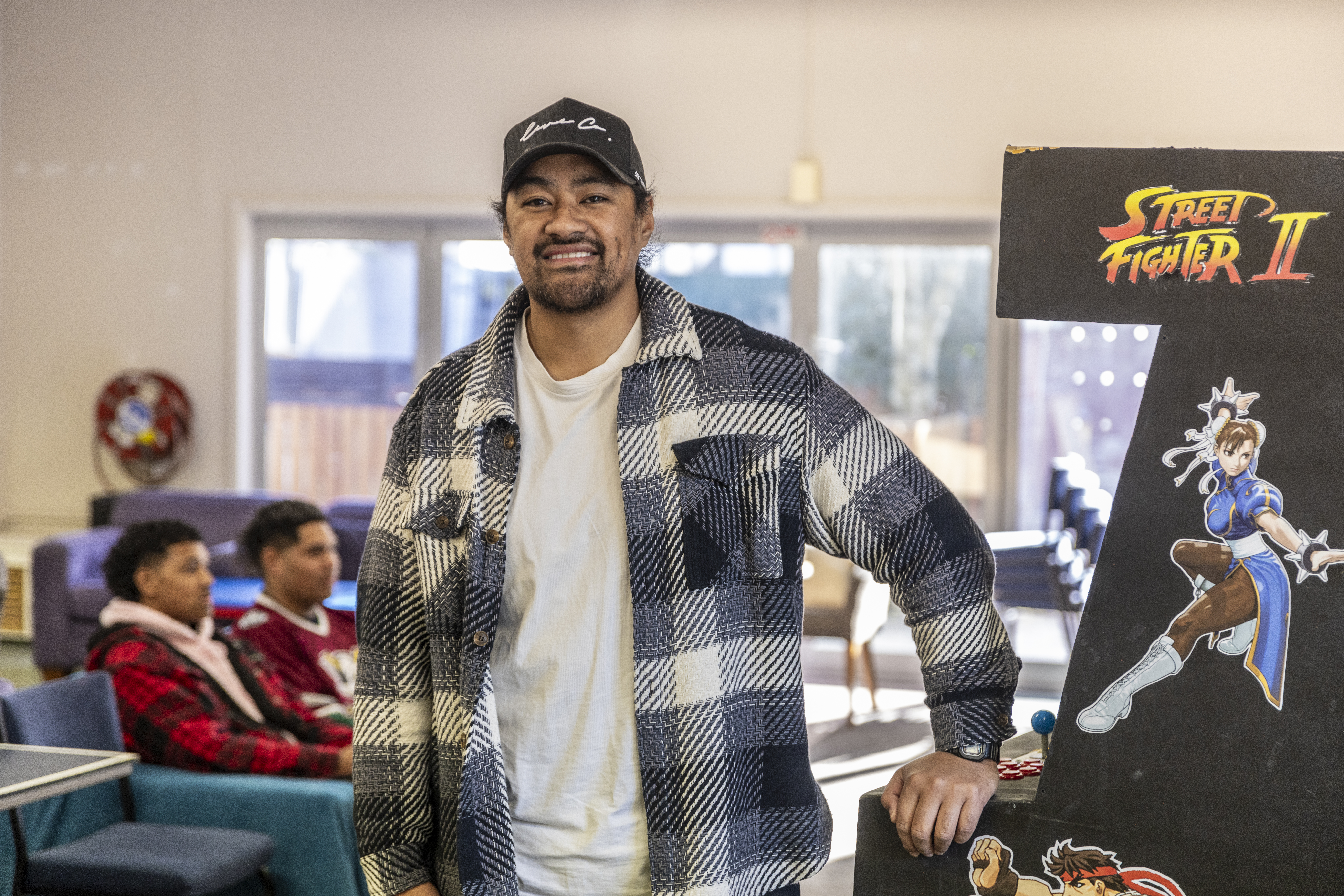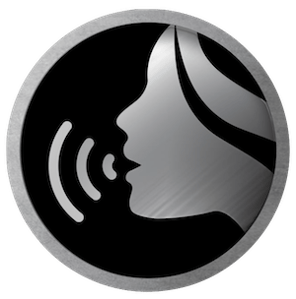In May 2021, Tusiata Avia won the Ockham Award for Poetry with her book The Savage Coloniser Book, becoming the first pasifika woman to do so.
Her stellar literary resume includes four acclaimed books of poetry, children’s books, an internationally touring play and a number of writer’s residencies and awards.
Success, however, is not her motivation.
“I’d be in trouble”, Tusiata says, “if I wrote for accolades.”
Simone Kaho spoke with Tusiata about her journey from a seven-year-old girl who deeply felt Christchurch’s racism and violence and made plans to leave and travel the world, to a woman who, on returning home, unexpectedly found permission to reclaim her dream.
Thank you, Tusiata, for making time to speak with us. Would you like to share your gafa?
My mother is Catherine Sylvia Avia, born here in New Zealand.
Her father was from Yorkshire, John Senior, and came here when he was about 14. And never lost his very thick Yorkshire accent. And her mother was May Senior, who, her people had been here for a few generations. Originally came from Gloucestershire and Scotland.
On my father’s side, my father is Samoan. And he was Namulauulu Mikaio Avia, from Matautu Lefaga. And his father was Le Mamea Avia, from a number of different places. And his mother was Tolise Avia, and she was from Iva, Savai’i.
Thank you. Tell us about this house. Is this the house you grew up in?
This is my house where I grew up. And I live with my mum and my daughter, Sepela. My mother and father built this house 60 years ago, when this area was just sand holes and lupins and that kind of thing. There weren’t many houses here. And we’re in Aranui, which is now one of the most socially and economically deprived areas in Christchurch. But it wasn’t that then; it’s become that over the decades.
What was it like growing up here in Christchurch?
Good and bad. One of the things I loved about living here is that at that time we were surrounded by rivers, and trees, and lupins, and sand hills. So we ran around and swam, and made huts and made fires, and caught eels and that kind of thing. And so I loved that. It all disappeared by the time I was about 10, and now it’s all housing.
But the other part of living here in Christchurch is I was aware from really young, probably 6 I would say, that I didn’t like it. I think I just kind of felt through my skin that Christchurch was quite a violent place to be.
And, you know, I grew up in the ’70s and ’80s, so that was Muldoon era, Dawn Raids era, Springbok Tour era – so deeply racist, and still racist, you know? That’s why we have massacres.
I was making a plan to leave here from when I was about 7. I would recount this plan to my best friend, Christine Bradford, most mornings on the way to school. I’d say to her how I was going to leave, and I would travel the world. And I would tell her all of the countries I was going to go to, which I did end up doing.
So you followed a plan you made at 7 years old?
Yeah. It took a little longer than I thought. I planned to leave at 17, because that feels really old when you’re 7. I didn’t actually leave until I was 20. And I didn’t do the big overseas journeying until I was 29.
Your poem ‘I Cannot Write a Poem about Gaza’ is so intimate. I didn’t know when I first read it that you’d spent time in the Middle East.
Was that a time of political awakening for you?
It was. I spent three years with a pack on my back, just constantly travelling. But I spent most of my time in Africa and the Middle East, and I lived in Egypt for a year, close to the border of Israel. So I would go back and forward; it was a three-hour drive to the Israeli border. I’d take a bus to Israel a lot, and I had relationships with Israeli people. It was in quite a good time politically because things were quite calm as far as Israel goes, at the time. So it was easy to go to places like Gaza and other Palestinian areas.
It gave me that personal relationship, and it did really wake me up politically to the situation there and many other places as well.
When did you discover your attraction to poetry?
When I was 10. I went to Chisnallwood Intermediate, down the road. And I had this teacher, Mrs Bell, bless her, who was actually really mean.
She was constantly berating the class and me, but she was really supportive of creative writing. And she had us constantly writing poems and stories, and I took to it, you know, like a duck to water. I realised that I had this facility for it. And at that age it just kind of came pouring out of my ears, you know?
I won the Chisnallwood Literary Cup, which was very exciting for me. I would say that’s probably right up there with my most treasured literary accomplishment.
And I kept writing until I was 15, and then I shut that down. I think I had become really aware then of who I was as a brown girl in Christchurch in 1981. And I decided that brown girls like me do not go on to become poets. So I really shut it down and I didn’t start writing again until I was in my 30s.
Where was that decision coming from? Was it that you didn’t see anyone who was brown and a poet? Or did somebody say something to you?
No, no one said anything, but they didn’t need to because I drank it in through the pores of my skin. Like many young people do. I remember the last poem I wrote, actually, in the fifth form. And I thought, “This is it, this is the last one.” And I pretty much didn’t really write after that. I had the odd time when I couldn’t bear it anymore and might write a poem or two every now and then. But generally I didn’t write. I was a big reader, but I didn’t write.
What was that last poem about?
It was a Christian poem actually. I was going through my born again Christian phase from 15 to 20. And kind of typical of me, even though it was a Christian poem it was quite dark. I think that contributed to it too, me stopping writing. Thinking that “well, you can’t write dark poems when you’re Christian.” I’d never been rainbows and flowers. There were other people who can do that, you know?
When did you first come across other Pacific women writers?
Not for a really long time. I left New Zealand when I was 20, so that would’ve been 1986, and I went to Samoa. That was my year of trying to find my Samoan-ness. It didn’t go that well, I’ve got to say.
And then I came back for about two years, and then I left and was away for about 10 years.
It wasn’t until the end of 1999, so by that time I was in my early 30s, and I came back to Christchurch to visit my parents. And my cousin Victor Rodger, who is a playwright and was doing really well at the time, introduced me to his friends, who were really well-known playwrights, and actors, and filmmakers, and writers. And they were all Pacific and Māori. I was absolutely stunned.
That 10 years that I was away, which was the 90s basically, there was this huge flowering of Pacific arts, and I didn’t know about it. I had a vague idea of what Victor was doing, but other than that I didn’t know. I came back and discovered all of this, and made friends with people as well. In particular the Urale sisters, who were very kind and kind of took me under their wing. And I thought, “Oh, if these people like me can do this, I can do it too.” And that’s what gave me the permission to go on to be a poet and a writer.
At what point did you decide to go to the IIML?
So I had to have a plan. I did actually. At that time I was living in London. So I did go back to London for a year to make a bit of money. And I thought, “Well, I can’t just come back to New Zealand and sit in my bedroom and be a writer. How am I going to do this?” So I decided to do a course. I applied for the IIML, and I didn’t get in the first time. So I did a one year course at Whitireia, which was great actually because it gave me a go at trying my hand across genres. By the end of that I thought, “Right, poetry is obviously what I’m best at.”
And so I applied again to the IIML and got it. I think that was 2001, no 2002. So there were those two straight years of doing a course. And then I did another half year course after that, also at IIML. So that gave me a really good starting point.
Your first book, Wild Dogs Under My Skirt, was the first book I read where I felt “This is talking to something in me.” It was the first book by a Pacific Island woman as well, but specifically the visceral brutality, and the humor, and the light and softness. I had no sense that they could coexist in such a way, and when I read your book I felt compelled that this was something that I needed to pursue. Writing that is.
Do you have a sense of your books out there in the world reaching people, like Wild Dogs reached me? Do you have any reflection on that?
It’s always a real honour to hear that from people. And particularly from Pacific people, and particularly from Pacific girls and women. That that book in particular gave them permission and made space for them and spoke to them. And then they were able then to consider writing, and/or performing themselves. So that’s always one of the greatest things for me. When I hear that I’m like, “Okay, I’m doing the right thing. I’m doing what I came to this planet for.” You know?
I mean I never write with that intention, I always just write for myself. I just write what is real for me and my own truth, I suppose.
So since I’ve been talking about going to the IIML, I had known about it and I had talked about it for many years. But it wasn’t until I read your book, it was that year I did that application. And since then I’ve now got a book, and it was reviewed in a collection of three with your third book. Which was problematic for a number of reasons. But what I’m getting to is, what’s it like being a Samoan writer in New Zealand? How did the critics treat you?
Well, of course it all depends who is doing the critiquing, right? Because whoever is doing the critiquing is bringing their knowledge and the lack of knowledge, and experience and lack of experience with them. Particularly up until my current book, my books were being critiqued by non-Pacific people, who didn’t have the experience or the knowledge of the Pacific. Didn’t know the stories, didn’t know the references. Didn’t know the environment in which these poems live. And I find that really… I want to use a bigger word, but can’t find it. I just find it really annoying.
Because it’s not that hard, it’s not that hard to do a little bit of Googling and find out ‘what does this Samoan word mean?’ And look at a little bit of background. It’s not that hard. So that kind of coming to another culture and presuming that you know everything, and not trying… It’s crap, you know? It’s crap. Therefore some of the reviewing has just been ridiculous, and really annoying. It really pisses me off, you know? Because inside that reviewing approach is privilege. And the idea that what they know about poetry and literature is everything, that it’s enough. And that is offensive to me.
You touched on your year in Samoa, discovery year, which I can relate to as well – not going that well but also being hugely connective and informing. The Samoan-ness in your work feels very present and very connected. How do you want your Samoan-ness to be connected through your work? Or how do you see it as connected through your work?
Yeah, it’s a really interesting question, right? Because for someone like me, and I know that there are so many people in the diaspora that are like me, who are Samoan but born in New Zealand, or away from Samoa… Who are also Palagi, who don’t speak Samoan. So there’s all of the things that come with not knowing the language. It’s a complex thing.
And in fact I was thinking to myself last night while I was doing the dishes, like I have probably hundreds or thousands of times in my life, what kind of a Samoan am I? What do I call myself?
Sometimes I call myself Samoan, sometimes I call myself a New Zealand Samoan. Sometimes I call myself afakasi, which is kind of a reclamation of that word. Because it’s horrible when you hear it in English, right? Half-caste; it always reminds me of a mule or something. Like half a donkey, half a horse, you know? But identity is always moving, according to how we feel at the time, what’s going on in our lives at the time. It’s always moving. But I think that that is the beauty of being afakasi, born in New Zealand, and without the language. I think that’s the beauty. But because we’re always up against our identity, we’re always questioning, we’re always in relationship with “Who am I, and what am I?” You know? Where do I fit?
And there’s a lot of power in that actually. There’s a lot of spark in that. And that has fueled my work, that’s been a major fuel in my work. And it also gives me the permission to stand inside and outside the culture, both cultures, and remark on them. In a way that without that relationship I wouldn’t be able to do.
I love that, I find that personally really motivating. I’m so glad you said that to me. One of the things of being half-caste, and afakasi, or visibly not white is getting asked where you’re from. Or coming up against whatever racist stereotype. So when I read about the experience you had at Unity Books, I was just mad and almost ‘LOL. This is ridiculous.’ But I know it’s something that happens to so many, particularly young people. It would be amazing if you could tell us what happened.
Well, it’s the crime of being brown in a bookshop, right?
It was Unity Wellington Bookshop. It was the week that I was rehearsing Wild Dogs Under My Skirt as a one-woman show at Circa. So it was the first time it was on at a professional theatre, and it was also the week that my book was coming out. I got off the bus, I went into Unity to look for something, and I was only in there for a very short time and it was a big lunch-time crowd. Really crowded, lots of people. And then I left and I got on the bus.
Anyway, the manager of the shop and a number of other shop assistants followed me onto the bus and asked me to get off of the bus and go into the shop. I was really enraged, because this was the second in six weeks that they’d done that.
So six weeks before that I was in there with my palagi friend, we were looking around. And we left the shop and we went to the ATM, and one of the shop assistants followed us down and asked me to lift up my jacket. She said nothing to my palagi friend. I was stunned, but I did. So it was for the second time in six weeks. First time, you know, is one thing, second time in six weeks? Not okay.
So I marched back into the shop and I was furious. I emptied my bag, and it was a lunch time crowd. It was humiliating. But I was also furious. By the time I left the shop I was in tears. And I had a couple of people who were in the shop saying, “I saw what happened, that’s disgusting!”
I should’ve taken the phone numbers, because a short time after that I decided to send a formal complaint to the race relations. It wasn’t successful, unfortunately. But Unity Books have never apologised to me, properly. They sent me a letter, and it was very… “Well, we lose $20,000 a year in books.” I don’t care, apologise to me properly. Say you’re sorry. But they wouldn’t.
And that has stung me all of these years, you know? A lot of the festivals that I go to are backed by Unity Books, but I will never buy a book from Unity Wellington ever. And I will not go to a book launch there. You know I am deeply offended, still. That was back in 2004, but it broke that va, that relational space between me and them so badly that I’m still deeply offended.
You can see me getting really riled up here, because it is such an appalling example of a brown woman daring to be in a bookshop, like Unity. And there’s absolutely no way I could believe their excuse, not twice in six weeks, no. So that’s me and Unity Wellington.
They handed you such perfect material to respond to. It gave me maybe perverse satisfaction to think they’re going to be stocking your book. They’re going to be selling your book, that’s now won the Ockham. Does that give you any satisfaction?
It’s a funny thing, because of course that was the week that Wild Dogs came out. It wasn’t yet in the shops, but when it did go into their shop I was infuriated and I didn’t want it in their shop. There was some communication between me and them, but they said “You’ve got no say.” Yeah, all of my books go into their shops. Which still burns me, you know? Yours is probably a way better way of looking at it. But yeah, I’m still deeply offended. And I may be writing Unity poems for a long time yet, you know?
I just know this happens all of the time.
All of the time.
All of the time.
Yeah, all of the time.
It reminds me of what you were saying about it getting in your skin. Nobody had to say anything. I mean in this case somebody really did, they followed you twice. Moved you physically, which is a kind of… I mean it’s not a kind of… it is violence.
It is, yeah. It’s such a common thing, you know? We all experience it in one way or another, even if it’s just being watched extra extra closely in a space that we’re not supposed to be in. Whether that’s a shop, or that’s a certain event. Whether when we are mistaken for the waitress, or the cleaner, or when we’re actually there to win an award. You know? And this is part of our ongoing experience, and it enrages me.
When you were standing on the stage and reading the poem that swears at James Cook, It was a delightful moment; it was really delicious. How did you feel? How did you read the audience response?
What I was really aware of and what I could hear, was there was a contingent of Māori on my right. And I heard them cheering the poem along, which was great. But I was also kind of aware of the people on my left, and I kind of heard a few indrawn breaths. One of my friends said to me afterwards that there was a couple behind them, and one turned to the other and said “Oh, it’s so violent!”
And that has come to my mind quite a few times, because colonisation, right, is so violent. Whether it was Captain Cook landing here, and the genocides, plural that followed, or whether it’s the many layers of violence that go on now. But I guess that speaks to that demographic, the kind of people that go to book festivals – older, more well-to-do white people – who find that violent because they have no experience or, it seems, even information about the violence that is foundational to this country.
It shouldn’t surprise me, but it keeps surprising me. It doesn’t surprise me, but it keeps shocking me. I keep being shocked.
I get what you mean. It’s like this guttural reaction. It’s a feeling.
A lot of things kind of bypass my brain. I’m not a super brain person, a lot of things just go immediately through the pores of my skin. Hit me in the gut, hit me in the throat, hit me in the heart. That’s how I tend to receive the world; that’s how I tend to live in the world. And poetry for me has very often been about trying to process that stuff. The best way for me to do it is on the page. I’m not someone that’s quick on the uptake. I often don’t react in conflict situations, or in a situation where someone will say something offensive. I’m often shocked and frozen, and I don’t get a chance to reply. Until a bit later, and often the best way for me to do that is on the page.
I thought about what you said after the awards about how you can say things on the page that you can’t speak. You also said you felt peaceful, and I thought to myself you did speak them. They were on the page, and also, you spoke them. Is that why you felt peaceful?
I felt peaceful afterwards. But to tell the truth, knowing that I was going to read that poem, I was a bit nervous about it for a number of days beforehand. Because I knew the audience that I was reading into. It’s not like I’m having a session at the festival and people will come to see me and they kind of know what they’re going to get. But this is the wider, much more mainstream audience. And I was kind of thinking, “Oh, am I allowed to swear?”
Just having those doubts and nervousness around doing that, and around going into that space and saying things that will shock people. That even sounds funny to my own ears, but it’s stuff that happens.
I’m not who I am on the page. That’s a part of me, but I’m not who I am on the page 100% of the time. I’m who I am on the page a much smaller percentage of the time. And I think when people meet me they think I’m going to be really hardcore and some kind of warrior princess or something.
And maybe I am a warrior princess in one aspect of my life, but I’m pretty sensitive, and a really nice person.
I just have to laugh, because I have thought that, a little bit.
If you meet me through the page, and if you see me on stage, if you meet me through the stage you only see that aspect. You only see that, “Oh my god!” Samoan warrior princess who is literally wielding a machete, you know?
And yes, that is an aspect of myself, and I love that. But most of the time in this world that is not my experience. Especially people who have read my work and it’s important to, and especially Pacific women. If I’m developing a friendship with them I’ve got to say, “That’s not me.”
I mean we’re talking really niche here, the few people that read poetry and Pacific poetry in particular. There can be that putting the person on a pedestal, and it makes me super uncomfortable. I’m a real egg actually, you know. Don’t… Like if there’s going to be a personal relationship, you know?
I’m not really an egg, but you know what I mean.
Sorry for that, sorry that I did that to you!
No, it’s not personal. But it does happen, you know?
And I do love that that warrior goddess has that life on the stage and on the page, and it speaks into women’s lives in particular and kind of wakes that part up. I really do love that. But yeah, I remember having a colleague and she just couldn’t let that go.
When you were saying you can feel things coming in through your skin. The discomfort of being in Christchurch, the badness of it. When you perform does it feel like the reverse of that?
Yeah, performing for me is a number of things. I was going to say therapeutic, and it is. But it’s also a little bit like channelling. In my best moments of writing, that’s what it feels like. That I’m channelling something bigger than myself.
Channelling the Samoan war goddess, or whoever. So I love performing, I really love it. I love to have that experience.
Is peaceful still the right word for how you feel about winning the Ockham Award for best book of poetry?
Winning and losing is a weird thing. But I’ve got to say I’m also grateful, because this is 20 years now that I’ve had this career. It’s been a year of accolades, you know? I’ve had a lot of things. I’ve had a lot of accolades and recognition in this last year, and I am grateful for it. I’m grateful for it because I’ve had periods where I’ve just felt like I’ve been completely forgotten about. That I’m living under the ground. The last four and a half years my health has not been good at all.
I’m all dressed up for this, I’ve done my makeup, I’m in my hair, and I’m in my best dress. No one should think that this is my life, because for the majority of my time I’m in my pajamas and I’m in bed or I’m on the couch. Because my health is really crap, and I have epilepsy and I can have eight seizures in a couple of days or a week. Sometimes I can have a seizure in public and lose bladder control. That’s not a cool look, you know?
So my life is very different from my public life, which is only, I don’t know, 5% of my life.
I can’t remember the point I was making now, but I guess my life is like two very strange oppositional things. It’s quite odd, it’s quite an odd life.
In the writerly world it’s so hard. I hope this might mean you get paid properly for writing.
Awards come with money, which has been awesome. My brother said to me the other day, “You know, you’ve lived your dream life.” And he’s right in many ways, because I made that decision to be a writer 20 years ago and I’ve been once since. So I have lived my dream life. I’ve done what I love, and I’ll keep doing that until the day I drop dead. But I’ve also had to give up a whole bunch of things.
My brother has done well financially, you know? And I haven’t. I live with my mum, I don’t own a house. I don’t have much money. Those are the things that I’ve sacrificed, you know? It feels worth it to me. Unless I hang around people a lot, who have houses and money and talk about it all the time. Then I start feeling like a bit of a failure. It all depends on what you surround yourself with. I like being with poor artists, it makes me feel normal.
You mentioned writing as therapy for you. And then when I think about your poems about Gaza and about Christchurch and about Captain Cook, I think about your poetry being therapy on a communal level. Naming the feelings people can’t name. How do you feel about that?
I guess I’m part of the whole, right? So I respond to things that affect a large group of people. I respond to it in my own way, and that’s very personal. But if it affects people in such a way that I’m also telling their story, or in some way giving them permission to connect with something in themselves or outside, then again, that’s a real honour for me. That’s a real honour.
Do you think things are going to change significantly because of the win?
No. I’ve definitely had more offers of festivals or performances. When you win an award, or some kind of accolade, then that creates a ripple effect. And then offers come in to do different things, but it’ll only last for a while. It only lasts for a while. All of these things are temporary, eh? They’re all temporary. And if I based my sense of worth on those accolades, I would be in trouble. I’m grateful for them, and it feels good. But I would be in real trouble if I did this, what I do for the accolades. I really don’t.
I find that so understandable.
Because then you’re writing outside of yourself, right? If you’re writing and thinking, “Right, I’m going to get an award for this. How can I write so I can get an award? How can I write so that I can be the best?” You’re in trouble. For me, I have to write because I’m writing from here (touches heart), or I’m trying to respond to something, I’m trying to understand something, I’m trying to work something out. I’m trying to express something that I feel strongly about. I can’t be writing because I’m trying to win something, or hope that somebody recognizes me or likes something. It would put me outside of myself and it wouldn’t be truthful or feel good even.
I was going to ask if you’re a first generation artist, but I know you’re not now.
No, I’m not. So my mum is an artist. She might be surprised that I say that. She, typical of women of her kind of class and generation, I think. She was always talented at visual arts. She did her first year at art school and then had to drop out because her father was sick and they were quite a poor family. And so she never went back to art school and she was never able to carry on with her work.
She painted when I was little, but as things got more demanding she stopped. And she actually put all of her paintings away in the garage, and they sat there for decades. She’s 87 now, and I would say that she took those paintings out of the garage about two years ago. They would be 50 years old, a lot of them, and she finished them. And now she’s hung them in her studio.
So I recognize that my mother has had a way harder creative journey than I have. I am of the generation where we’ve had way more chances to be educated and follow our dreams. And that’s what my father wanted for me. He wasn’t educated, but he desperately wanted it for me and my brother. So I think I’ve been lucky like that, yeah.
We’re going to be meeting your daughter, and we’re going to be going to the beach. How do these things that surround you every day fit into your writing and your being?
Well, it’s interesting that we’re here, right? Because this is my childhood house. I left here when I was 16, and I didn’t come back until I was 40, and I wanted to get away from here when I was 7.
So I often think that it’s quite ironic that here I am. Not only living back in Christchurch, but living in my childhood house. Which wasn’t always happy. It feels like a full circle.
So yeah, it’s an interesting thing to be back where I started. And to kind of have to, I don’t know if it’s making peace, but it’s – What is it? I don’t know what it is.
But certainly living in connection with the earlier part of my life is different… I don’t know, I have to write a poem about that actually, so I can figure it out.
I find Aranui, energetically, a hard place to be in. Sometimes I wonder if this house is built on something, because there’s often quite a heavy atmosphere here. And I’ve wondered, is it the house? Is it the difficult stuff that’s gone on in this house when I was growing up? I think that’s part of it. But you know, I’ve had people come in to cleanse the house a number of times, but there’s still this kind of heaviness.
I wonder about Aranui. I don’t know what it is. Maybe it’s because I’m super sensitive, maybe other people wouldn’t feel this way.
But there is Brighton Beach, which is five minutes from here. Just being by the sea kind of blows all of that away. I love being down there. I love being by any sea, any water. But because it’s so close, it’s really great to have that kind of blow this heaviness away.
And to live with my mum and my daughter is a very surprising privilege. I’m 55 at the moment, so talking back to my young self and even myself in my 20s and my 30s, couldn’t think of anything more heinous than living in my childhood house. But now it does feel like a privilege to live with my mum. For my daughter and my mum to have that really close relationship that I didn’t get with either of my grandmothers. So there’s a lot to be grateful for in my life actually.


